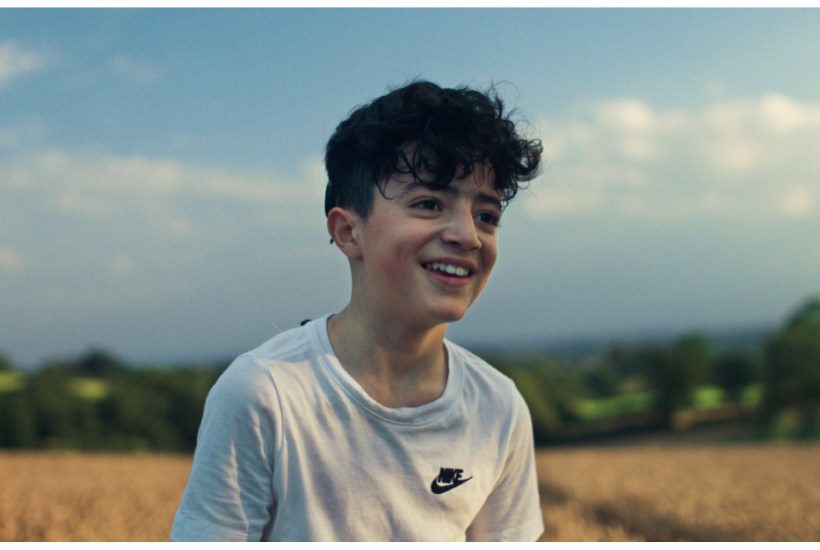You’d have to have a heart of stone to not be moved by Name Me Lawand. It’s a documentary about a Kurdish boy, deaf since birth, who has lived a lonely, isolated and shut-in life until he learns British Sign Language and slowly starts to blossom and reveal who he is. (Who are we without language?) There is only one big release this week – Mission: Impossible – Dead Reckoning Part One, which I couldn’t see in time for my deadline anyhow – but this small film has to be more affecting than any mission that turns out to be possible in the end. Unless, that is, your heart is one of the stony ones.
The film is impressionistic and observational. It does not give us specific facts, which can be frustrating. But it wants to immerse us in Lawand’s world, and it does so grippingly. He is around six at the outset. He has wonderfully dark curls and wonderfully dark eyes although what’s going on behind them nobody knows as he cannot communicate, not even with his family, who are all hearing.
The family are living in Derby after a treacherous journey involving small boats, the back of a truck and a year in a refugee camp, shown in brief, terrifying flashbacks. It’s not a political film with a capital ‘P’. It just shows us how they came here, out of desperation, for Lawand’s sake. There was nothing for him in northern Iraq. There were no provisions for deaf people. His parents were told Lawand couldn’t attend school and should be kept home. He wouldn’t venture out because if he did other kids would throw rocks at him. ‘We realised if we stayed Lawand would not be given a proper chance of life,’ says his father. He has an older, lovely, protective brother, whose only wish is for Lawand to feel safe. ‘Sometimes I think my brother is on the wrong planet. I wish there was another planet for Lawand and for us.’ Lawand had never met another deaf person.
He is enrolled in the Royal School for the Deaf in Derby. The staff say, initially, that he may never communicate, that it may be too late. This, too, looks like mission impossible. At first, progress is slow. He trusts no one. He is fearful. His parents want him to use his voice, learn to talk. He will not. He is filmed over four years. We see slow progress become remarkable progress as he learns BSL. He is revealed as inquisitive, super-bright, with cheekiness behind the eyes and a big smile. He makes jokes. He loves football. We share his excitement as he becomes able to express himself and be himself. He forms a special bond with one amazing teacher, Miss Scott (Sophie), who shares her own story – holed up in a tower block, she didn’t communicate until she was seven – so he begins to share his. There is a fantastic scene that involves drumming and another when two boys from the school come to his door to ask him out to play. He has never had a friend before. Meanwhile, the family are under constant threat of deportation.
The film is directed by Edward Lovelace who learned BSL and employed a deaf crew. Everything is subtitled – the signing and speech – so it’s not made solely with a hearing audience in mind, even if there is a substantial amount of overwrought music on the soundtrack that I could have done without. It’s Lawand’s story, but by the end his parents are beginning to learn that deafness isn’t a lack and BSL isn’t inferior to speech. It’s like being French, say. The same, just a different language.
If you’re not moved, then chances are you probably have a heart that may even be made of graphene, one of the hardest substances known to man.
Got something to add? Join the discussion and comment below.
Get 10 issues for just $10
Subscribe to The Spectator Australia today for the next 10 magazine issues, plus full online access, for just $10.
You might disagree with half of it, but you’ll enjoy reading all of it. Try your first month for free, then just $2 a week for the remainder of your first year.














Comments
Don't miss out
Join the conversation with other Spectator Australia readers. Subscribe to leave a comment.
SUBSCRIBEAlready a subscriber? Log in